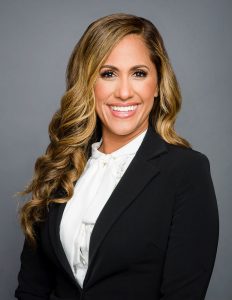About Andria
About Andria
Aloha,
I believe that great leaders don’t set out to be a leader; they set out to make a difference.
Hawaiʻi is undeniably ripe for change. We have been confronted with uncertainty amidst these trying times. We’ve learned many lessons about ourselves and our government; particularly that we are resilient and we have the power to create change.
I am committed to leveling up our community standards and move forward together with optimism and confidence to build a brighter future for us all.
Respectfully,
Andria Tupola
Aloha,
I believe that great leaders don’t set out to be a leader; they set out to make a difference.
Hawaiʻi is undeniably ripe for change. We have been confronted with uncertainty amidst these trying times. We’ve learned many lessons about ourselves and our government; particularly that we are resilient and we have the power to create change.
I am committed to leveling up our community standards and move forward together with optimism and confidence to build a brighter future for us all.
Respectfully,

Andria Tupola
“In order to succeed in life, you need to be proud of every part of who you are.”
Andria’s Path
 Setting the Stage
Setting the Stage
I was born on the North Shore of Oʻahu at the Kahuku Medical Center 16 days before my due date which was a surprise to everyone. At the time, my father was in law school at the University of Hawaiʻi and my mother was completing her degree to be a music teacher.
My family moved to Hawaiʻi Kai in East Oʻahu when I was very young. Our home was constantly filled with music from my mom who taught me how to play piano before the age of 4 and read before the age of 5. My father’s work ethic led him to be the first Samoan judge in the United States at the age of 37. His ability to pioneer new pathways inspired me and set the stage for meaningful things I hoped to accomplish with my life.
I attended Kamehameha Schools at Kapālama and became a song contest leader during my sophomore year. I graduated at 17 and through hard work and determination, I received early acceptance to Brigham Young University in Provo along with numerous scholarships to cover my education.
 Rising to the Challenge
Rising to the Challenge
One of my first experiences at BYU-Provo was a lesson in humility. I had confidently applied to the university’s music program but wasn’t accepted on my first try. BYU was extremely competitive and I thought I was as talented and accomplished as anyone else. The second time around, I leveled up my competitiveness and was accepted into the program.
I was very active in college and served as the Women’s President, Polynesian Club President. One day, I received a very clear impression of a name: Matt Blackner. I didn’t know who he was but the next day a campaign manager for a student government candidate came to my house, asked me to be a running mate for Matt Blackner. While I hadn’t planned on participating in student government, I agreed based on the previous impression and thus began my first campaign journey.
Matt and I had a high-level campaigning team that ran like a well-oiled machine: We received campaign schedules every morning, we discussed branding, we prepared for debates, and we canvassed in the snow. We got through the primary race and were put against two very competitive journalism students in the general race. Despite the odds and challenges along every step of the way, we won the election. As BYU’s Student Body Vice-President, my knowledge of leadership grew exponentially, and I came to the realization that by rising to the challenge – whether in music or leadership – it made me a better person.
 Humbling Experiences
Humbling Experiences
A year before graduating from BYU, I felt a strong desire to serve a church mission. To my surprise, I was assigned to Venezuela in South America. I had little knowledge of the country and did not speak Spanish. I went forward with a desire to help improve the lives of others.
From 2003-2004, I saw Venezuelans receive free housing, free education, and free health care from the government. In 2002, President Chávez had assumed power and while his socialist reforms seemed good, it disenfranchised people by taking away their individual freedoms. I lived through social and political unrest in the country. I remained focused on my purpose to help others and in doing so I learned much about politics, culture, and language.
Before living abroad, I understood little about different political philosophies and the consequent influence governments have on individuals, communities, and nations as a whole. When I returned to Hawaiʻi, I felt profound gratitude and humility for my basic freedoms to vote, to voice my opinions, and to support good people for office.
 Forging New Pathways
Forging New Pathways
I married my husband in 2006 as he was pursuing professional football in Utah, Texas, and then Michigan. We had both completed our undergraduate degrees and we both enjoyed our new careers. In 2007 our first daughter was born and the following year, while pregnant with our second daughter, we felt Hawaiʻi tugging at our heartstrings.
We moved to Waipio, Oʻahu in 2008. I had just started a master’s degree at the University of Hawaiʻi and was juggling teaching piano, raising our children, and supporting my husband with his new job. In 2010, after much reflection and prayer, we bought a house in West O’ahu. While we didn’t have any family or friend connections there, we felt a strong impression that it would be the best place to live and raise our daughters.
We fell in love with our new community. As 2012 approached, I began to notice some government policies being introduced that were similar to the ones in Venezuela. I felt concerned for my family and the future of Hawaiʻi. I thus decided to forge a new pathway into civic engagement by volunteering for a candidate I believed in. After the election, I did not want to lose momentum and I remained active by joining my local neighborhood board.
 Sensing a Shift
Sensing a Shift
As I became active in the community, I was approached many times to run for office. It seemed unthinkable because my two daughters were only toddlers and aside from full-time mom duties, I had few personal connections in the Westside community. I was also a political outsider with no financial backing and without a mentor or campaign manager. Yet, my strong desire to make a positive difference and a personal sense that my life needed to shift in this direction removed all doubt.
In 2013, I raised $10,00 to ensure a well-funded campaign for the 2014 race. By organizing my work into spreadsheets, I calculated specifics like how many votes I’d need to win each precinct and how many people I had to talk to in a day. Often, I’d feel overwhelmed knowing that in some areas, I might need 500 votes but I knew only a handful of people. These numbers were daunting but kept me accountable. For many months, I hit the streets at 3:00 pm and stayed out until dark. After each day, I’d put my canvassing notes and phone numbers into an ever-growing database of supporters. It began as a nearly insurmountable challenge but ended as a labor of love.
I planned the day of the election down to the minute: I knew what time I’d wake up and the kind of breakfast foods that would be in my volunteer’s brown paper bags. I had a vote goal on a piece of paper taped to the wall. When the polls closed, I said a prayer with my husband and headed down to be with supporters. That night, I won by 56% against an eight-year incumbent who was the majority floor leader. My motto of “People Before Politics” had resounded with the community and now it was time to go to work.
 We Create Change
We Create Change
Getting elected was the first of many challenges to come. Within my first days at the Hawaii State Capitol, my optimism began to wane as my expectations were nothing like reality. However, I was eager to learn, and I poured myself into understanding as much as I could.
In 2015, I spoke at the Kohala High School Gymnasium to address the overwhelming drug problem. The people asked me to help create a community action plan. I asked, “How many of you feel like there’s a drug problem in your community?” Everyone nodded in agreement. I continued, “How many of you feel like your legislator doesn’t listen to your concerns?” The crowd began to stand and clap while someone wondered aloud, “Who is our legislator?”
I finally asked, “How many of you feel like there’s a power over you that you can’t control?” At that point, the room was fully energized with everyone on their feet, and I responded, “The only power people have over you is the power you give to them. So don’t give it to them.” It was that very day that a strong impression came flooding over me: “You can help more people. Prepare yourself now.”
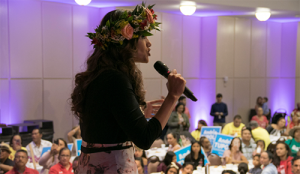
Our Time is Now
As a state legislator, I was happy to serve my community, but my heart ached to do more for the people of Hawaii. We needed a leader that would listen, empower the people, and create change at the community level. So I decided to make the leap and run for Governor.
It was daunting, but my determination exceeded any fear. I was taught at BYU to be a lifelong learner. At 37-years-old, I became the youngest Republican candidate and the first Native Hawaiian woman to run for Governor in Hawaii. While the odds were against me and the learning curve steep, it forced me to grow in record time. My 2018 campaign motto, “Our Time is Now,” was the catalyst for change, and it helped shift the mindset of people throughout Hawaii.
In the end, I received 33% of the vote, raised $510,000, and recruited a large grassroots campaign team. The decision to run in 2018 was the right decision because it brought hope to people across generations and laid the framework for future growth.
 Giving Hawaii Hope
Giving Hawaii Hope
In reflection of 2018, I studied my campaign structure and identified areas for improvement. My analysis included crunching numbers to reveal trends about what parts of Hawaii were receptive to my message and who was ready for change. I began to feel more confident to run and win a Governor’s race in 2022. However, 2020 when COVID hit it shifted things for me, my campaign, the community, and the world. I felt the need to pivot, and shortly after was asked to run for the city council seat. I prayed on this decision and felt that it was the right step forward. I believe that God prepares you for things you don’t know you are going to do.
I didn’t know the challenges that would come as a city council member. But, I learned quickly about union organizations, city operations, housing, land, and zoning. I moved forward with a message of “Giving Hawaii Hope” through prioritizing local families so they can afford to live here for generations to come.
With a robust and well-oiled campaign team, support from my family, and hard work, I obtained a 59% victory in a five-way Primary Election in August 2020. I felt overwhelmed with gratitude to the community who supported my vision of bringing much-needed change and will continue to bring results to my District and the people of Hawaii.
Raising the Standard
My first four years as a City Councilmember was a steep learning curve but at the same time so enriching for my life and for my community. I realized that much of the work I did as a State House Representative was really city work. I loved doing clean ups, giving service, addressing emergency situations, and combating crime. The boots on the ground work in the city was very appealing to me and my type of leadership.
It was so different being on the Honolulu City Council than the Hawaii State House. I started off as the Council Floor Leader and Chair of the Executive Matters and Legal Affairs Committee. I was able to chair a committee, vice chair a committee and really given a more prominent ability to showcase my leadership. The work was similar of advocating for bills and against bills. But the speed of passing legislation and making a difference was much faster.
I used to represent 10 to 12 thousand people as a representative while the district I represent as a councilmember is ~137,000 as reported in the last 2020 census. I had a team of 6 staff working with me – marching down the field with me to get things done for the community. We slapped the vision statement on our office walls and went to work focused on Housing, Homelessness, and Public Safety in a way that people had never seen before. As councilmembers we are allowed to run for two terms and I decided early on that I was game to serve again and raise the standard.
Andria’s Path
 Setting the Stage
Setting the Stage
I was born on the North Shore of Oʻahu at the Kahuku Medical Center 16 days before my due date which was a surprise to everyone. At the time, my father was in law school at the University of Hawaiʻi and my mother was completing her degree to be a music teacher.
My family moved to Hawaiʻi Kai in East Oʻahu when I was very young. Our home was constantly filled with music from my mom who taught me how to play piano before the age of 4 and read before the age of 5. My father’s work ethic led him to be the first Samoan judge in the United States at the age of 37. His ability to pioneer new pathways inspired me and set the stage for meaningful things I hoped to accomplish with my life.
I attended Kamehameha Schools at Kapālama and became a song contest leader during my sophomore year. I graduated at 17 and through hard work and determination, I received early acceptance to Brigham Young University in Provo along with numerous scholarships to cover my education.
 Rising to the Challenge
Rising to the Challenge
One of my first experiences at BYU-Provo was a lesson in humility. I had confidently applied to the university’s music program but wasn’t accepted on my first try. BYU was extremely competitive and I thought I was as talented and accomplished as anyone else. The second time around, I leveled up my competitiveness and was accepted into the program.
I was very active in college and served as the Women’s President, Polynesian Club President. One day, I received a very clear impression of a name: Matt Blackner. I didn’t know who he was but the next day a campaign manager for a student government candidate came to my house, asked me to be a running mate for Matt Blackner. While I hadn’t planned on participating in student government, I agreed based on the previous impression and thus began my first campaign journey.
Matt and I had a high-level campaigning team that ran like a well-oiled machine: We received campaign schedules every morning, we discussed branding, we prepared for debates, and we canvassed in the snow. We got through the primary race and were put against two very competitive journalism students in the general race. Despite the odds and challenges along every step of the way, we won the election. As BYU’s Student Body Vice-President, my knowledge of leadership grew exponentially, and I came to the realization that by rising to the challenge – whether in music or leadership – it made me a better person.
 Humbling Experiences
Humbling Experiences
A year before graduating from BYU, I felt a strong desire to serve a church mission. To my surprise, I was assigned to Venezuela in South America. I had little knowledge of the country and did not speak Spanish. I went forward with a desire to help improve the lives of others.
From 2003-2004, I saw Venezuelans receive free housing, free education, and free health care from the government. In 2002, President Chávez had assumed power and while his socialist reforms seemed good, it disenfranchised people by taking away their individual freedoms. I lived through social and political unrest in the country. I remained focused on my purpose to help others and in doing so I learned much about politics, culture, and language.
Before living abroad, I understood little about different political philosophies and the consequent influence governments have on individuals, communities, and nations as a whole. When I returned to Hawaiʻi, I felt profound gratitude and humility for my basic freedoms to vote, to voice my opinions, and to support good people for office.
 Forging New Pathways
Forging New Pathways
I married my husband in 2006 as he was pursuing professional football in Utah, Texas, and then Michigan. We had both completed our undergraduate degrees and we both enjoyed our new careers. In 2007 our first daughter was born and the following year, while pregnant with our second daughter, we felt Hawaiʻi tugging at our heartstrings.
We moved to Waipio, Oʻahu in 2008. I had just started a master’s degree at the University of Hawaiʻi and was juggling teaching piano, raising our children, and supporting my husband with his new job. In 2010, after much reflection and prayer, we bought a house in West O’ahu. While we didn’t have any family or friend connections there, we felt a strong impression that it would be the best place to live and raise our daughters.
We fell in love with our new community. As 2012 approached, I began to notice some government policies being introduced that were similar to the ones in Venezuela. I felt concerned for my family and the future of Hawaiʻi. I thus decided to forge a new pathway into civic engagement by volunteering for a candidate I believed in. After the election, I did not want to lose momentum and I remained active by joining my local neighborhood board.
 Sensing a Shift
Sensing a Shift
As I became active in the community, I was approached many times to run for office. It seemed unthinkable because my two daughters were only toddlers and aside from full-time mom duties, I had few personal connections in the Westside community. I was also a political outsider with no financial backing and without a mentor or campaign manager. Yet, my strong desire to make a positive difference and a personal sense that my life needed to shift in this direction removed all doubt.
In 2013, I raised $10,00 to ensure a well-funded campaign for the 2014 race. By organizing my work into spreadsheets, I calculated specifics like how many votes I’d need to win each precinct and how many people I had to talk to in a day. Often, I’d feel overwhelmed knowing that in some areas, I might need 500 votes but I knew only a handful of people. These numbers were daunting but kept me accountable. For many months, I hit the streets at 3:00 pm and stayed out until dark. After each day, I’d put my canvassing notes and phone numbers into an ever-growing database of supporters. It began as a nearly insurmountable challenge but ended as a labor of love.
I planned the day of the election down to the minute: I knew what time I’d wake up and the kind of breakfast foods that would be in my volunteer’s brown paper bags. I had a vote goal on a piece of paper taped to the wall. When the polls closed, I said a prayer with my husband and headed down to be with supporters. That night, I won by 56% against an eight-year incumbent who was the majority floor leader. My motto of “People Before Politics” had resounded with the community and now it was time to go to work.
 We Create Change
We Create Change
Getting elected was the first of many challenges to come. Within my first days at the Hawaii State Capitol, my optimism began to wane as my expectations were nothing like reality. However, I was eager to learn, and I poured myself into understanding as much as I could.
In 2015, I spoke at the Kohala High School Gymnasium to address the overwhelming drug problem. The people asked me to help create a community action plan. I asked, “How many of you feel like there’s a drug problem in your community?” Everyone nodded in agreement. I continued, “How many of you feel like your legislator doesn’t listen to your concerns?” The crowd began to stand and clap while someone wondered aloud, “Who is our legislator?”
I finally asked, “How many of you feel like there’s a power over you that you can’t control?” At that point, the room was fully energized with everyone on their feet, and I responded, “The only power people have over you is the power you give to them. So don’t give it to them.” It was that very day that a strong impression came flooding over me: “You can help more people. Prepare yourself now.”

Our Time is Now
As a state legislator, I was happy to serve my community, but my heart ached to do more for the people of Hawaii. We needed a leader that would listen, empower the people, and create change at the community level. So I decided to make the leap and run for Governor.
It was daunting, but my determination exceeded any fear. I was taught at BYU to be a lifelong learner. At 37-years-old, I became the youngest Republican candidate and the first Native Hawaiian woman to run for Governor in Hawaii. While the odds were against me and the learning curve steep, it forced me to grow in record time. My 2018 campaign motto, “Our Time is Now,” was the catalyst for change, and it helped shift the mindset of people throughout Hawaii.
In the end, I received 33% of the vote, raised $510,000, and recruited a large grassroots campaign team. The decision to run in 2018 was the right decision because it brought hope to people across generations and laid the framework for future growth.
 Giving Hawaii Hope
Giving Hawaii Hope
In reflection of 2018, I studied my campaign structure and identified areas for improvement. My analysis included crunching numbers to reveal trends about what parts of Hawaii were receptive to my message and who was ready for change. I began to feel more confident to run and win a Governor’s race in 2022. However, 2020 when COVID hit it shifted things for me, my campaign, the community, and the world. I felt the need to pivot, and shortly after was asked to run for the city council seat. I prayed on this decision and felt that it was the right step forward. I believe that God prepares you for things you don’t know you are going to do.
I didn’t know the challenges that would come as a city council member. But, I learned quickly about union organizations, city operations, housing, land, and zoning. I moved forward with a message of “Giving Hawaii Hope” through prioritizing local families so they can afford to live here for generations to come.
With a robust and well-oiled campaign team, support from my family, and hard work, I obtained a 59% victory in a five-way Primary Election in August 2020. I felt overwhelmed with gratitude to the community who supported my vision of bringing much-needed change and will continue to bring results to my District and the people of Hawaii.
Raising the Standard
My first four years as a City Councilmember was a steep learning curve but at the same time so enriching for my life and for my community. I realized that much of the work I did as a State House Representative was really city work. I loved doing clean ups, giving service, addressing emergency situations, and combating crime. The boots on the ground work in the city was very appealing to me and my type of leadership.
It was so different being on the Honolulu City Council than the Hawaii State House. I started off as the Council Floor Leader and Chair of the Executive Matters and Legal Affairs Committee. I was able to chair a committee, vice chair a committee and really given a more prominent ability to showcase my leadership. The work was similar of advocating for bills and against bills. But the speed of passing legislation and making a difference was much faster.
I used to represent 10 to 12 thousand people as a representative while the district I represent as a councilmember is ~137,000 as reported in the last 2020 census. I had a team of 6 staff working with me – marching down the field with me to get things done for the community. We slapped the vision statement on our office walls and went to work focused on Housing, Homelessness, and Public Safety in a way that people had never seen before. As councilmembers we are allowed to run for two terms and I decided early on that I was game to serve again and raise the standard.

 Setting the Stage
Setting the Stage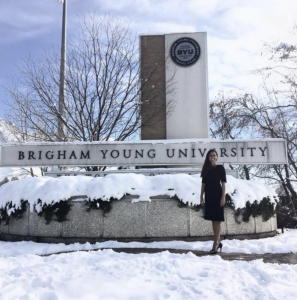 Rising to the Challenge
Rising to the Challenge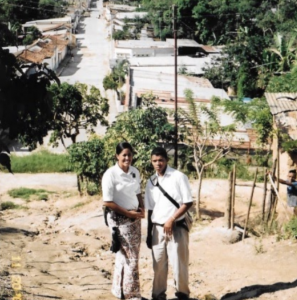 Humbling Experiences
Humbling Experiences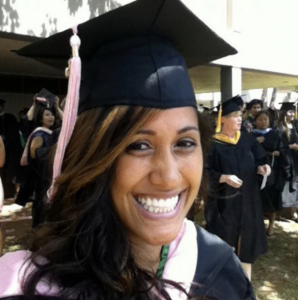 Forging New Pathways
Forging New Pathways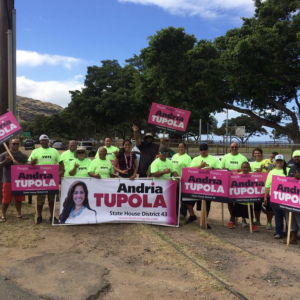 Sensing a Shift
Sensing a Shift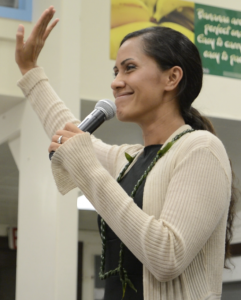 We Create Change
We Create Change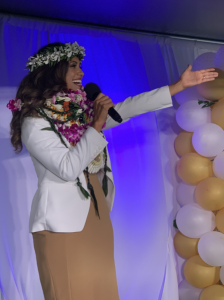 Giving Hawaii Hope
Giving Hawaii Hope